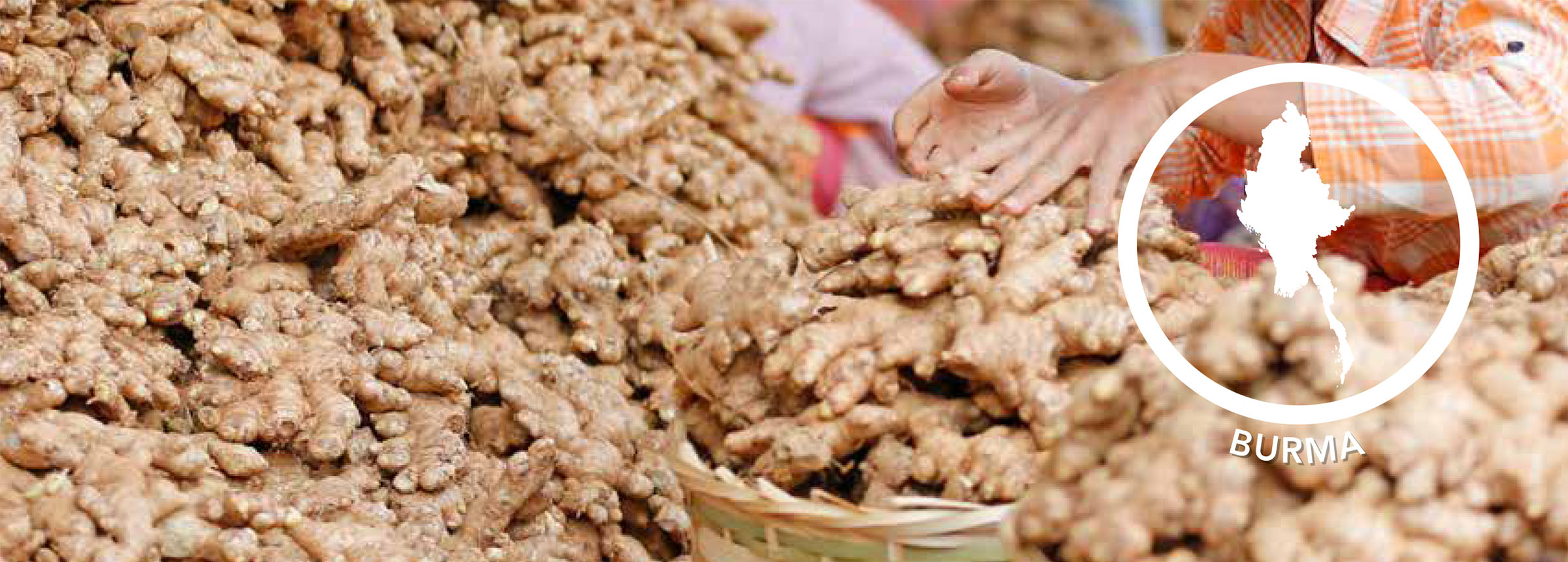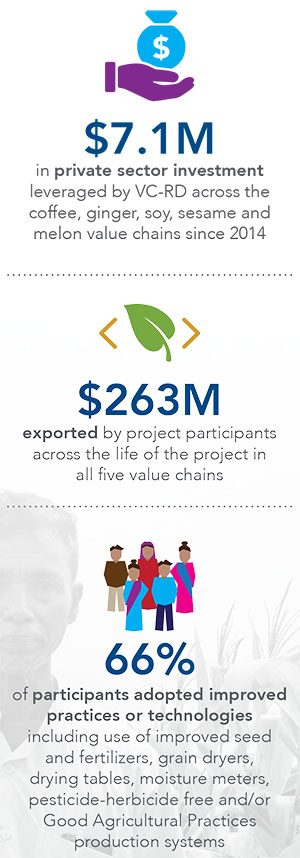
Burmese Ginger Farmers Go ‘All Natural’
 PROJECT NAME: Value Chains for Rural Development (VCRD)
PROJECT NAME: Value Chains for Rural Development (VCRD)
SYNOPSIS: VCRD supports smallholder producers, farmer groups, agribusinesses and community organizations in the coffee, soybean, ginger, sesame and melon value chains in Burma.
YEARS ACTIVE: 2014-2019
FUNDER: USAID
U Aye Hlaing had never tried it before, but after seeing healthy stalks of ginger shooting up from shaded, naturally composted soil at a pesticide-free ginger demonstration plot, he decided to go “all natural” with his own crop in Ale Chaung Village, southern Shan. He planted an acre of ginger seed, spacing plants widely to give them room, intercropped with maize for shade; and used home-made fertilizer with pig manure.
The improved practices were introduced by USAID’s Value Chains for RuralDevelopment project through 16 ginger demonstration plots established in collaboration with community host farmers from around southern Shan. Like other ginger producers in the region, U Aye Hlaing explained that experimenting with improved practices simply made good sense to him: “Better price for better ginger; healthier for environment and people; lower production costs,” he said.
Working with community-based agriculture extension partners since January 2018, the Value Chains and local partners had conducted Farmer Field Days at ginger demonstration plots and host farms in Kalaw, Pindaya, Pinlaung, Hopong and Yatsauk townships. These efforts enabled 4,250 smallholder farmers to learn from each other, ask questions and observe the results of good agricultural practices, such as composting, intercropping, shading, wider spacing, contour planting and the responsible use of inputs.
The activities are helping ginger farmers position themselves with better-quality products to meet the demands of new markets, including for export. In 2017, the project held Myanmar’s first ginger “Business-to-Business” trade marketing event in Shan, gathering growers, processors and buyers to build new market linkages, help farmers find new customers and forge relationships to strengthen the value chain. Since then, farmer groups and processors collaborating with the project have shipped pesticide residue-free ginger to the U.S., Europe and Sri Lanka, opening up new export channels to buyers willing to pay premiums for quality produce.
Ginger is one of the main sources of income for about 10,000 households in six townships in southern Shan, an area that produces about 90 percent of Myanmar’s ginger. The Value Chains project works through community and private-sector partners to support local extension capacity, improve market linkages and protect human health and the environment. The five-year project also supports coffee, soybean, melon and sesame value chains. It has linked Burmese coffee growers with lucrative international markets, supported nearly 40,000 households through direct project interventions, and formed 24 new public-private partnerships in the agriculture sector.
By working with farmers to improve growing practices, produce better products and connect them with new markets, Winrock is aiding the environment while expanding opportunity.
